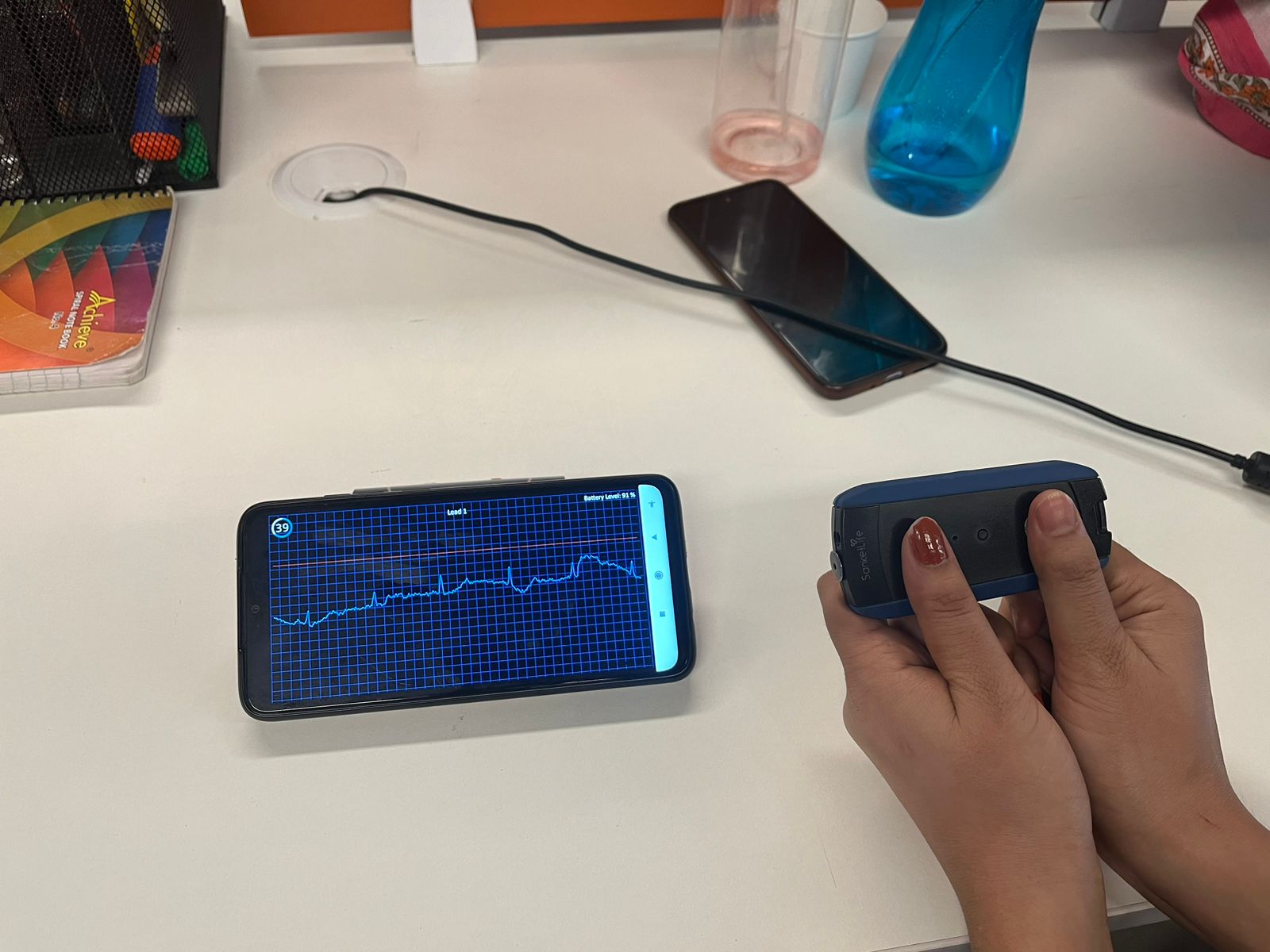
The Impact of Heat and Humidity on Heart Rate, Pulse Rate, Blood Pressure, and the Risk of Heart Attack: Insights from an Employee Survey Using Portable ECG Device Health 360

Introduction
With temperatures hitting the highest in the past days in Delhi NCR as high as 43° Celsius as on 22nd May and humidity up to 100% has led to worry about the condition of heart with these rising temperatures. Yes, it is connected.Heat and humidity are environmental factors that can significantly influence various physiological parameters, including heart rate, pulse rate, blood pressure and the potential risk of heart attack. In this article, we explore the findings of a survey conducted on the employees of Agatsa – A Digital Healthcare Solution Provider focussing on comprehensive digital health monitoring. The survey utilized the organization’s own devices to measure heart rate, pulse rate and blood pressure before and after heat exposure, providing valuable insights into the effects of heat and humidity on cardiovascular health.
Methodology

The survey involved a sample of 50 employees of Agatsa who are exposed to heat while they commute from their respective locations to the main office located in Noida. Post their arrival to the office, their heart rate, pulse rate and blood pressure measurements were obtained using Agatsa’s Portable ECG devices SanketLife ProPlus and Health360. The devices are designed to provide accurate and reliable readings, enabling a comprehensive evaluation of the impact of heat and humidity on cardiovascular parameters. According to the survey conducted over 50 candidates, out of which 10 who came to office with direct exposure to heat and humidity, either by commuting by two wheeler or using public conveyance were shown to have increased parameters like heart rate, pulse rate and blood pressure when compared to the resting state. The findings are as below:
Effect on Heart Rate
Analysis of the survey data revealed notable changes in heart rate using Agatsa’s Health360 Device, following heat exposure. A significant proportion of participants experienced an increase in heart rate, which can be attributed to the body’s response to heat stress. As the body attempts to regulate its temperature, the heart works harder to pump more blood, leading to an elevation in heart rate.
A recent study looked at cardiovascular death rates, where daytime temperatures can reach up to 47°Celsius. The researchers found a link between rising temperatures and the risk of cardiovascular deaths, with most occurring between temperatures of 35° Celsius to 42° Celsius.
Not only does exposure to high heat increase the risk for heat exhaustion and heat stroke, but it can also place a particular burden on heart health. It stresses the cardiovascular system and makes the heart work harder. This can increase the chance of heart attacks, heart arrhythmias (irregular heartbeat), and heart failure.According to the Environmental Protection Agency, the interaction of high heat and cardiovascular disease contributes to about a quarter of heat-related deaths.
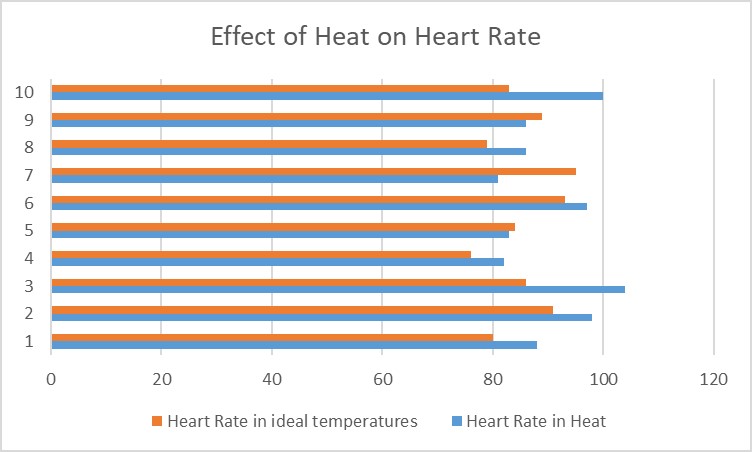
The graph illustrates a significant increase in heart rate when individuals are exposed to heat and humidity compared to their resting state.
Effect on Pulse Rate
Similar to heart rate, the survey indicated an increase in pulse rate after heat exposure. The body responds to heat by increasing blood flow to the skin, promoting heat dissipation through sweat evaporation. This adaptive mechanism leads to a rise in pulse rate as the cardiovascular system strives to maintain homeostasis.
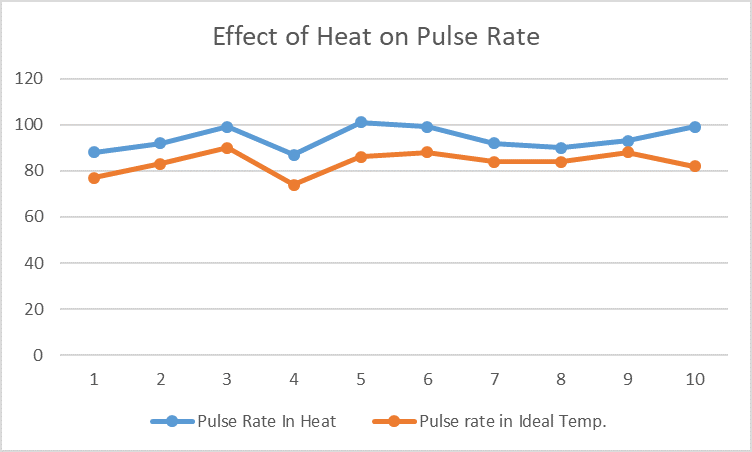
The graph illustrates a significant increase in pulse rate when individuals are exposed to heat and humidity compared to their ideal temperature state.
Effect on Blood Pressure:
The survey findings also demonstrated a correlation between heat and blood pressure. Exposure to heat and humidity resulted in temporary elevations in blood pressure among the participants. This can be attributed to the body’s response to heat, involving vasodilation to enhance heat dissipation. However, the widening of blood vessels can temporarily increase blood pressure due to the added strain on the cardiovascular system.
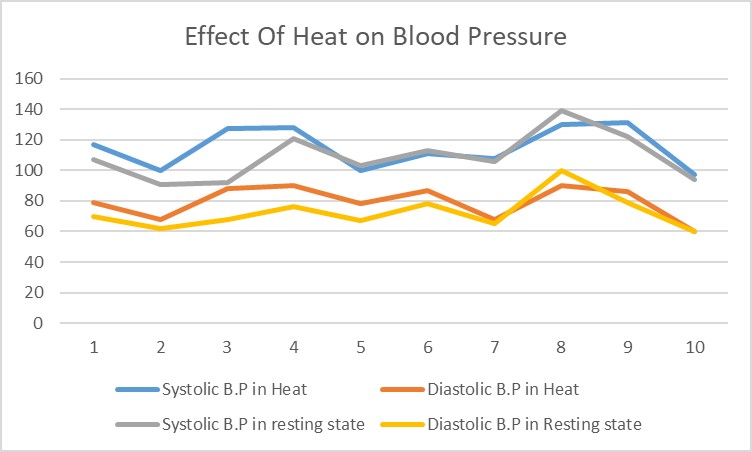
Risk of Heart Attack:
The observed changes in heart rate, pulse rate, and blood pressure following heat exposure have implications for the potential risk of a heart attack. Individuals with pre-existing cardiovascular conditions, such as hypertension or coronary artery disease, may be particularly vulnerable to the heightened risk during periods of heat and humidity. The survey highlights the importance of monitoring these parameters and taking necessary precautions to mitigate the risk of a heart attack in such conditions.
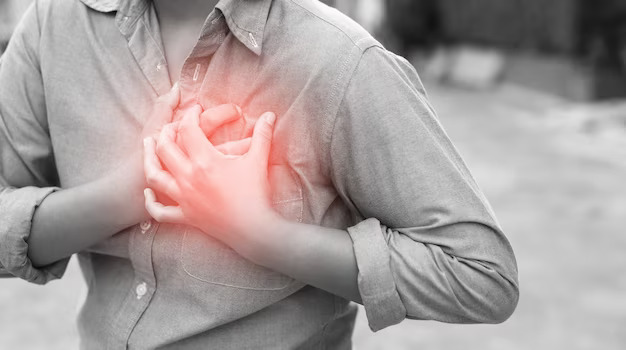
Conclusion:
The survey conducted on employees of the portable ECG developing organization using their own devices provided valuable insights into the effects of heat and humidity on heart rate, pulse rate, blood pressure and the potential risk of heart attack. The findings emphasize the significance of monitoring these parameters during heat exposure, especially for individuals with underlying cardiovascular conditions. By utilizing portable ECG device like SanketLife & the ultimate Body Vital Monitoring device like Health360; individuals and healthcare professionals can gather crucial information to make informed decisions regarding cardiovascular health in environments with high heat and humidity. Further research and awareness are essential to better understand and mitigate the impact of heat stress on cardiovascular well-being.
Sources:
- American Heart Association
- Harvard Health Publishing
- National Center for Biotechnology Information
- Science Daily
- The Heart Foundation
- U.S. News

